2019 is officially here, and with it comes the ability to leave some of our old, bad habits in 2018.
This applies to your IT habits as well!
In this post, the Kotori team wants to share with you five things our experts want you to leave in 2018. These may not have made your list of resolutions, but they’re important nonetheless!
1. Duplicate passwords
Data breaches continue to happen at a pretty alarming rate. That’s why it’s important to not use duplicate passwords.
Duplicate passwords are an easily avoidable security vulnerability. They ensure that if hackers crack one of your passwords, they’re cracking multiple passwords – or possibly all of them.
It seems like a convenient fix. And it may save you a few seconds when you log in.
The issue becomes when you do fall prey to a cyber attack.
Once malicious actors compromise your system, there’s no telling what amount of damage they can do. They’ll have access to your personally identifiable information such as your social security number. They may gain access to your bank accounts. You may be looking at months and months of headaches dealing with the after effects.
Simply put, the convenience can’t be worth the risk.
Our advice? Get a password manager. It helps you deal with multiple passwords for multiple systems in a much more secure way.
2. Weak passwords
Is your password easily identifiable? Does it include the numbers 1, 2, 3, and 4, in sequential order? Is it a word someone could easily guess if they knew anything about you, or had access to your information?
Also, please don’t tell us it’s just the word “password.”
Having a strong password is such an easy but critical step in securing your systems. Depending on your system requirements, your password should include:
- Numbers
- Letters – NOT an easily identifiable word
- Special characters (think $, !, ?, or &)
- A high number of characters (at least 8-12 characters. This will vary by system)
The less predictable your password, the better.
3. Your keyboard
You really don’t want to know how dirty your keyboard is. It’s not good.
But we’re going to tell you anyway.
An ABC News report found that your keyboard is most likely dirtier than a toilet. Seeing as how you’re likely to spend a big chunk of your day sitting at your desk working, this represents a significant health risk. The more time you spend with your butt in that seat, the more time you spend with your hands on the keyboard.
Here’s our two-step guide to fixing this issue:
1. Buy a new keyboard.
2. Clean your new keyboard regularly. We’re talking 2-3 times a week. Also, don’t forget to keep a bottle of hand sanitizer nearby and wash your hands regularly.
Your immune system (and possibly your keyboard!) will thank you.
4. Outdated anti-virus software
To ensure your systems are all up to date you need to download all anti-virus software updates.
It’s easy to fall behind on this one. Many assume that because software protects their system, they’re operating with the most current protections available.
This isn’t always the case. Check regularly for updates. Chances are they’re automatically updated, but it can’t hurt to take a proactive approach.
Your system should conduct scans on all incoming or outgoing files as well. Check to make sure the software has this capability.
If you’re part of a network of computers, it’s important to do this for all of them. Leave no stone unturned!
5. Weak cybersecurity plans for your business
Let’s say you work in an office. You probably have an evacuation plan, written down on paper in case of a fire or other emergency.
Do you have a set of cybersecurity policies documented so your entire team knows what to do in the event of a cyber attack?
To keep your organization safe, you should document all cybersecurity best practices in some sort of guide or handbook. It should include password management, what to do in case of a cyber attack, as well as best practices for how to manage a computer virus or malware.
Following these tips should help you have a happier and healthy 2019, at least when it comes to managing your IT systems! For more information on implementing some of these changes, contact us today!
